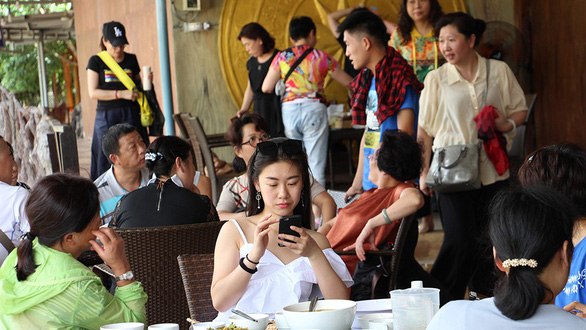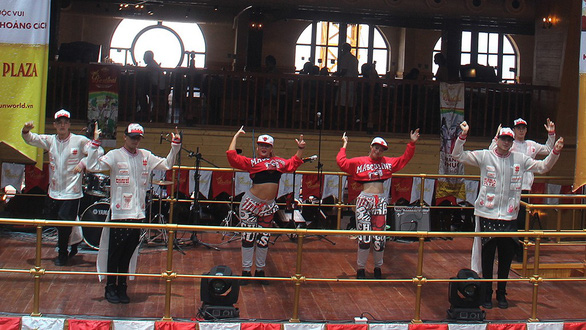Authorities in several top tourist destinations throughout Vietnam say that hundreds of foreign employees are working in resorts, travel establishments, and other service-sector jobs without meeting the proper visa and work permit requirements.
Although the issue seems to have persisted over the years, local regulators have failed to make any serious headway in resolving the matter, primarily due to inadequacies in their inspection and management mechanisms.
Foreign workers everywhere
Foreign workers, mostly Filipinos and Africans, are common at tourism establishments on Phu Quoc Island and in Ha Tien City, both popular destinations in the southern province of Kien Giang.
According to Tran Kim C., owner of a three-star resort in Cua Can Village on Phu Quoc, businesses operating in tourism are steadily hiring more and more foreigners in order to satisfy their customers, and her resort is no exception.
“Some of my European customers suggested hiring Filipino musicians, and I had to meet their demands,” C. told Tuoi Tre (Youth) newspaper.
These musicians have also helped their acquaintances and friends find work in Vietnam, C. said.
The monthly salary for these foreign employees is only US$100-200 higher than domestic workers, but they are disciplined and professional, with a very good work ethic, according to the resort owner.
“Currently, almost all the staff working at my resort are Filipinos, with just one or two Vietnamese employees in charge of the reception and cashier desks,” C. said.
According to Doan Hong Son, director of Kien Giang’s Department of Labor, War Invalids and Social Affairs, the province has yet to release statistics of the actual number of foreign workers in the locality, which appears to be increasing each year.
Likewise, service and tourism companies in beach cities such as Da Nang in the central region and Nha Trang in the south-central province of Khanh Hoa are increasingly turning to foreign workers, mostly from China and South Korea.
Besides working at hotels or resorts, foreigners in Nha Trang also sell handicrafts, gems, and bedding items to tourists, according to the Khanh Hoa Department of Labor, War Invalids and Social Affairs.
 |
| Foreign visitors are seen in Nha Trang City in the south-central province of Khanh Hoa. Photo: Tuoi Tre |
Illegally working
Authorities in most of these localities are well aware of the growing number of foreign workers in their jurisdictions, but they say that the increase is unregulated and many of the foreigners are illegal workers.
According to a report by the Khanh Hoa labor department, local authorities have identified 314 foreigners working illegally in the province after inspecting 25 local tourist and service enterprises since the beginning of 2018.
Many of the foreigners come to Nha Trang on travel visas or visas for visiting relatives but they then decide to stay and work illegally in the locality, with some even doing so after their visa expires, according to an official from the Khanh Hoa administration.
Similarly, the Da Nang labor department said more and more foreigners are flocking to the city, many of whom decide to stay and do work not allowed by their visa.
In just the first six months of this year, 23 foreigners were identified as illegal tour operators and tour guides in Da Nang.
An official from the Da Nang Department of Tourism admitted that the growth in illegal foreign workers stems from the demand for foreign language speaking tour guides, especially those able to serve the city’s rapid-growing Chinese and South Korean tourists.
For instance, Da Nang currently has only 150 licensed Korean-speaking tour guides, far fewer than the 550 employees needed to meet the existing market demand.
“Da Nang has plans to inspect 47 tourism enterprises that have yet to apply for work permits for their foreign workers and will handle any violations found,” said Phan Thi Thuy Linh, director of the municipal labor department.
It appears that authorities have yet to propose any overarching solutions to the problem of unlicensed foreigners.
According to immigration laws, enterprises must seek permission from government bodies before inviting foreigners or guaranteeing their entry into Vietnam.
In reality, many enterprises merely invite and sponsor foreigners to come and work in Vietnam without following any regulations whatsoever.
Like us on Facebook or follow us on Twitter to get the latest news about Vietnam!




















































